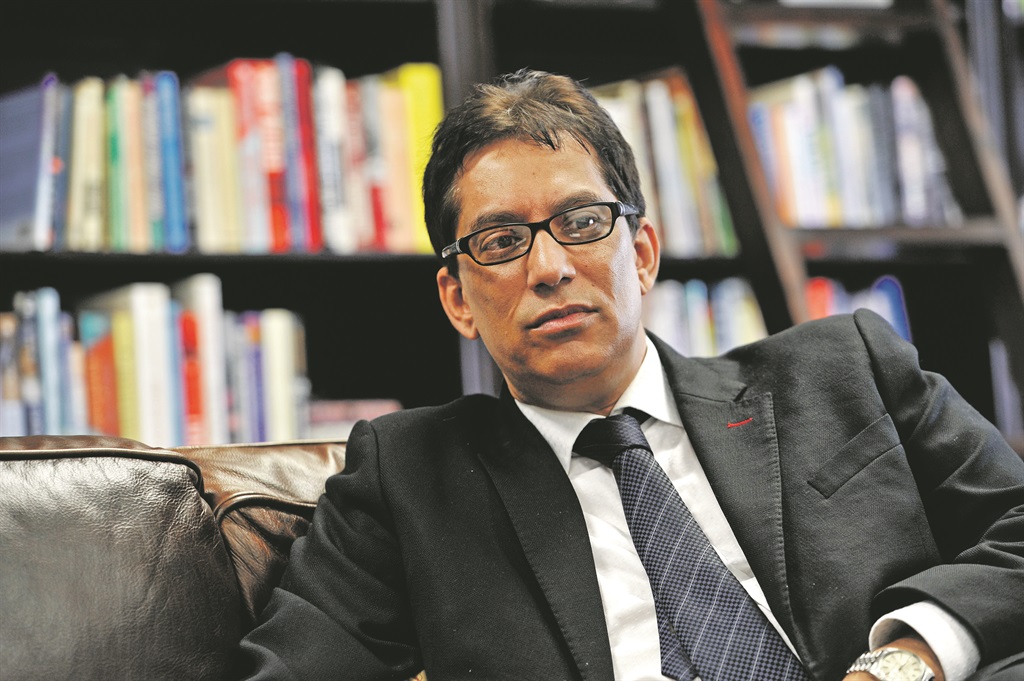
- Iqbal Survé’s Sekunjalo group of companies has won an interim interdict stopping Nedbank from closing its bank accounts.
- Nedbank and other banks started shutting accounts linked to Survé and Sekunjalo following the publication of the report of the Mpati Commission of Inquiry.
- While Sekunjalo argued that Nedbank was racist, the bank said it was closing its Sekunjalo accounts due to reputational harm.
The Equality Court has ordered Nedbank to reopen the accounts of businessman Iqbal Survé’s Sekunjalo group of companies, which it had previously shut citing reputational harm.
The court has granted Survé, Sekunjalo and 44 affiliated companies an interim interdict ordering the bank to keep all their accounts open and reopen shuttered facilities until the merits of the case can be argued later this year.
Survé is the founder and chairperson of Sekunjalo Investment Holdings, which is 100% owned by a Survé family trust.
Nedbank (and some other banks) started closing accounts of companies in the Sekunjalo stable in the wake of the publication in March 2020 of the findings of the Mpati Commission of Inquiry, which probed wrongdoing at the Public Investment Corporation.
The presidentially appointed inquiry’s final report found that the PIC’s investment in Sekunjalo group companies showed a "marked disregard for PIC policy and standard operating procedures".
The commission’s chairperson, Judge Lex Mpati, found that the "close relationship" between the PIC’s former head Dr Dan Matjila and Survé created "top-down pressures" on staff members.
He also recommended that the PIC conduct a forensic review of its transactions with the Sekunjalo Group.
After Nedbank started to shut its banking facilities, Sekunjalo brought urgent applications to the Competition Tribunal and Equality Courts to prevent their closures.
Sekunjalo based its case, in part, on the claim that it was a black-owned company which had been unfairly discriminated against by Nedbank. It argued that were Nedbank to have consistently applied its reputational harm policy, it would also have closed its accounts with Steinhoff, EOH and Tongaat Hulett, all of which have been involved in wrongdoing.
Sekunjalo described Steinhoff, EOH and Tongaat Hulett as "white-owned companies" and questioned why Nedbank had not shut their accounts.
Nedbank denied Sekunjalo's claims of discrimination, arguing that it had retained the companies as clients because, unlike Sekunjalo, they had been restructured, acknowledged wrongdoing or fired implicated employees.
"In Nedbank’s view, the retained companies no longer posed reputational risk since their transformation," noted presiding Judge J Dolamo.
The bank also argued that while Sekunjalo had attempted to downplay the findings of the Mpati Commission of Inquiry, they were "damning". In any event, it had chosen to not take them on review.
Nedbank also said that Sekunjalo had not put forward any evidence to support its claim that Steinhoff, EOH and Tongaat were "white-owned".
Prima facie, but open to doubt
Dolamo noted that he didn’t have to decide on the racial classification of the companies to make an interim ruling. Rather, he had to consider the question of whether Sekunajlo had a prima facie case against Nedbank, even if it were still "open to doubt".
And while Nedbank argued that Sekunjalo had alternative remedies – it could approach any of 70 banks in SA – Dolamo ruled that they would be unlikely to sign if Nedbank had ditched it.
In his ruling, he ordered Nedbank to retain or reopen the bank accounts of the 44 Sekunjalo entities without changing any of their terms and conditions.
The two sides will meet again in the Equality Court for the main application, where the merits of the case will be argued.
Sekunjalo will attempt to convince the court that it was unfairly discriminated against, while Nedbank will argue it was well within its rights to cut Sekunjalo lose.
Last week the PIC's board told Parliament that it had implemented 100% of the Mpati Commission's recommendations without providing specifics.
Judge Mpati's final report included around 300 distinct recommendations to improve governance at the state-owned asset manager.
The PIC said an advisory committee was in the process of verifying its compliance with the recommendations, after which it would update the asset manager's board.
Last year the PIC's former chairperson, Reuel Khoza, promised that it would soon share an interim report by the same advisory panel into how it was implementing the Mpati report's findings. But despite the promise, the PIC has not shared the report with the media.
Survé, meanwhile, has accused the PIC and other governmnet entities of colluding to target companies in the Sekunjalo group while being directed by "hidden hands".
Get the biggest business stories emailed to you every weekday.
Go to the Fin24 front page.

